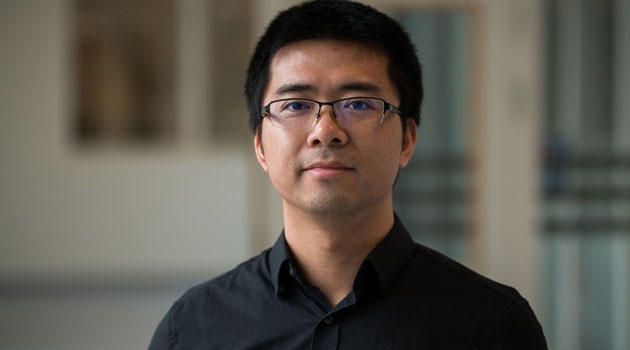New technology detects rare mutations
Fast, sensitive, and reliable technology for detecting rare mutations. This is the invention behind Rarity Bioscience, a spin-out company from Uppsala University.
Founded in the summer of 2021, Rarity Bioscience is the latest in a series of companies to emerge from the same research lab: Ulf Landegren’s research group at the Department of Immunology, Genetics and Pathology at Uppsala University. The innovators behind the technology that is now taking a step closer to benefitting patients are Professor Ulf Landegren and his colleague Lei Chen, PhD.
In simple terms, the technology can be described as a method that uses well-established technology in a new way to achieve highly specific and sensitive detection of mutations in patient samples, such as in blood. It can also be described as a molecular toolbox that is used on already existing equipment in laboratories.
“One problem we wanted to solve was the early detection of recurrences of cancer, for example. This technology helps us with that, and can be used on blood samples for early detection of mutations that lead to the development of cancer,” says Lei Chen.
Many different applications
Another use of the method is to see how well a cancer patient is responding to treatment by detecting the mutation levels over time, making it possible to adjust the treatment to suit that particular patient.
“We hope the technology will reduce the cost of cancer care by making treatment more cost-effective and improving patient outcome and quality of life,” says Lei Chen.
In addition to monitoring treatment and diagnosis, it can also be used in drug development and other research.
Encouraged to think outside the box
The fact that the research discovery was made in Ulf Landegren’s lab is something that Lei Chen believes has been crucial to his success so far.
“Ulf Landegren creates an environment in his lab where you are constantly encouraged to think outside the box to solve problems, and that has helped me a lot,” he says. He then continues:
“In his research lab, everyone comes into their own and you get the opportunity to develop your strengths. It all depends on what each individual wants to do. It's very unusual and quite cool.”
A new experience
The new technology is now far along on its journey from the research lab to becoming a commercial product. Lei Chen has no previous experience with product development and commercialisation, but he is determined to succeed in his work with the team at Rarity Bioscience.
“It’s very new to me, and I’ve had to change the way I work a lot. In the company, I am now responsible for technology development and when you go to market, everything has to work,” he says.
Launching in spring 2022
The company’s first product is for blood cancer analysis and is currently in the final stage of a validation study on patient samples. In parallel, the team is working to make the technology more user-friendly and optimized for high throughput.
“We are trying to increase the automation of the method to make it more user-friendly and robust. That’s why we’ve built a platform where a robot performs the actual incubation and the analysis is done using existing standard lab equipment,” says Lei Chen.
The first product will be launched in spring 2022. The team is also expanding its library of assays to provide more options for users. Lei Chen has a clear vision for the technology – it will benefit patients.
Agnes Loman
Newly founded spin-out company
- Rarity Bioscience was founded in June 2021 by Lei Chen, Ulf Landegren, Per Matsson and Mikael Smedeby.
- Rarity Bioscience has raised funding for its first years of operation, and one of the investors is Uppsala University's holding company, UU Invest AB.
- Rarity Bioscience has offices and a lab at Uppsala Biomedical Centre, and expects to have five employees by end of 2021.
- Rarity Bioscience is the latest in a series of spin-out companies from Professor Ulf Landegren’s research group, which has been part of the origin story of companies such as Olink, Halo Genomics, Q-linea och Navinci Diagnostics.

